Share the page
Myanmar: Women Working for Sustainable Energy
Published on
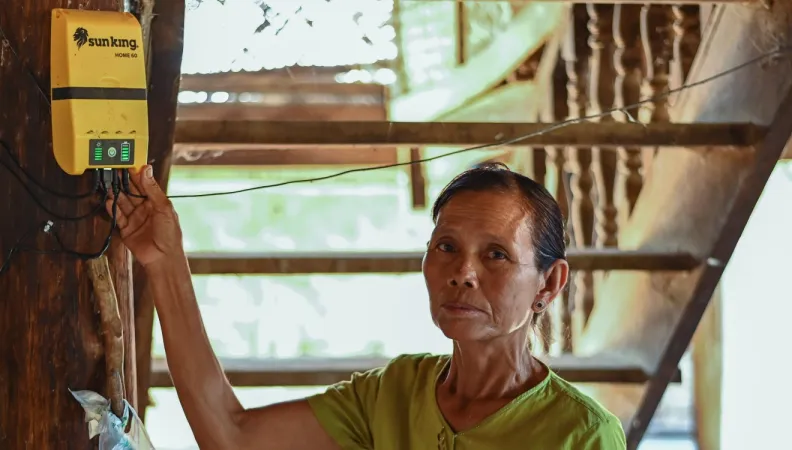
The NGO Geres, is addressing the lack of electricity in Myanmar’s remote rural areas, and implementing a project to distribute sustainable energy.
Heading out on the rough roads leading to Hta Nuang Kahn village, the electric power facilities become increasingly scarce, before they finally disappear altogether. We are in the Dry Zone, one of the poorest regions in the country, and home to 18% of the population. The residents here do not have access to reliable and quality electricity.
Most households use wood for cooking on traditional stoves, which put forest resources under a lot of strain: the deforestation rate stands at 2% a year nationwide.
Locals – mostly women – spend 200 hours a year on average collecting wood, and are at risk of contracting respiratory diseases from being exposed to toxic fumes.
Geres, with support from Agence Française de Développement (AFD), is addressing this issue by promoting the use of distributors of “last kilometer” Sustainable Energy Solutions (SES), which are the missing links to reach the most remote villages. Eight women have been trained in business to sell several types of SES: solar solutions, such as solar lamps or kits, as well as an improved wood cook-stove.
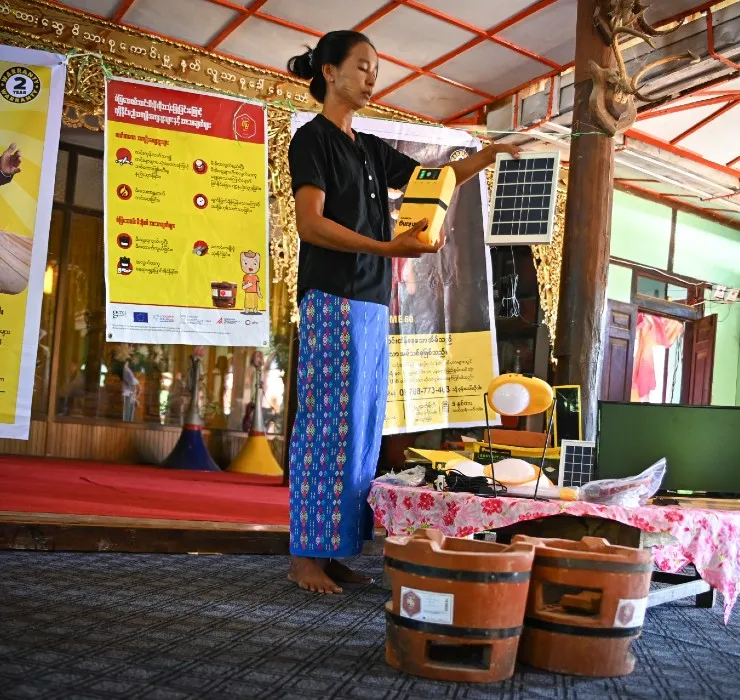
EFFICIENCY and SUSTAINABILITY
The first solution is simple, sustainable and economical: it involves optimized wood stoves, which have been developed in the lab by the Geres teams with support from the European Union.
“They consume 40% less wood and heat faster than traditional stoves: it now takes us seven minutes to boil water instead of ten”, explains Myint Myint Maw, who has been an entrepreneur for five months. This solution also substantially reduces the amount of smoke emitted.”
These improved stoves cost MMK 3,000 or just under €2. “The price is reasonable and families can afford to buy the equipment without getting into debt. In Hta Nuang Kahn village, 54 people have already bought one,” Myint Myint Maw is pleased to say.
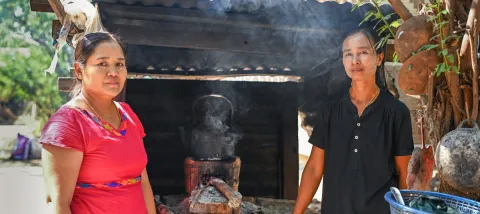 © Aung Naing Oo / AFD
© Aung Naing Oo / AFD
ELECTRICITY: POWER TO THE PEOPLE!
Daw Aye Myint lives in a big woven bamboo house with her family. “Before the installation of a solar kit at home, we used candles for lighting. But we couldn’t leave them burning all the time because of the risk of fire. We then installed a solar panel connected to a car battery. But we were told that this carried a serious risk of short circuits and fire. I heard about the solar kit through a presentation session organized by Myint Myint Maw.”
The kit – consisting of a solar panel, a battery and lamps – has changed her life. “It means we have light to work in the evening, and we can safely recharge our phones! I’ve also had a kit installed at my mother’s place. She lives in another village, and I’ve told my neighbors about it.”
The solar kit costs MMK 130,000, or about € 77, but loans are available. Daw Aye Myint will buy two – another one for her mother – and will repay MMK 20,000 a month for just over a year. “This has allowed us to invest by spreading out the purchase price for the kits over a longer period.”
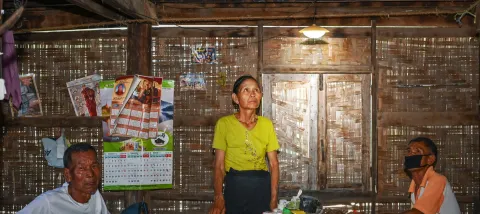 © Aung Naing Oo / AFD
© Aung Naing Oo / AFD
NEW SKILLS FOR BROADER HORIZONS
Myint Myint Win is based in the town of Thazi. She has been travelling around neighboring villages for years to sell everyday products: blankets, clothes, ventilators.
Now, she’s added Sustainable Energy Solutions to her repertoire, and has developed new skills since joining the program “I’ve received training in business models, marketing, financial management, as well as in the products themselves,” she says. “It’s taught me a lot! For example, I now know more about how to do everyday accounting.”
The Geres teams, with their partners from Myanmar’s civil society, continue to provide support for business management and sales, or by helping them organize demonstrations and the installation of solar kits.
Myint Myint Win’s increasingly rich skill-set has opened up new horizons: “I’d like to open a store to sell my products, rather than going door to door,” she says. “This would allow me to expand my activities. With this additional source of income I could finance my two children’s studies so that they can go to university.”
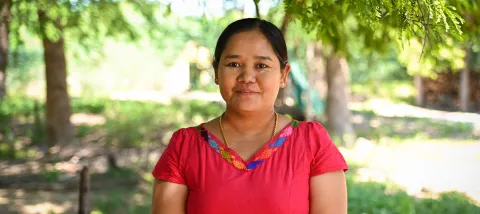 © Aung Naing Oo / AFD
© Aung Naing Oo / AFD
WOMEN’S ENTREPRENEURSHIP AT THE CENTER OF THE SYSTEM
In Myanmar, 50.5% of women work, as compared to 85.2% of men. According to a study by the International Labour Organization on women’s entrepreneurship in Myanmar (2014), they face a number of obstacles to set up their own business: less access to credit, information and education, as well as the burden of chores and domestic responsibilities.
These are barriers that the project aims to remove by offering tools to participants – selected for their motivation and commitment – to help them start their work. In addition to training, they benefit from capital to facilitate the investment. Geres then provides them with products which they pay for as their sales progress and they begin to earn an income.
Being an entrepreneur makes Myint Myint Maw proud: “I’m really happy to have been able to start this activity, support myself and be independent!”
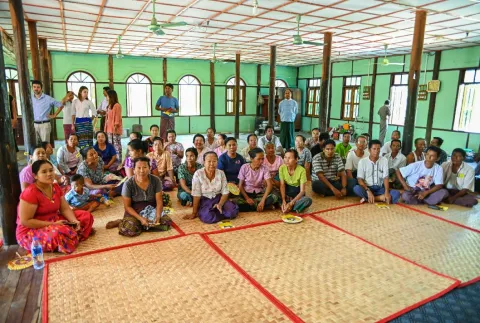 Les entrepreneuses présentent les solutions électriques durables (SED) qu’elles proposent aux villageois de Hta Nuang Kahn, dans la Dry Zone. © Aung Naing Oo / AFD
Les entrepreneuses présentent les solutions électriques durables (SED) qu’elles proposent aux villageois de Hta Nuang Kahn, dans la Dry Zone. © Aung Naing Oo / AFD
-
40,000 indirect beneficiaries
-
8 women trained in entrepreneurship
-
10,000 The objective for the number of sustainable energy solutions sold
